Wen Sheng Fu Stays Competitive by Meeting Ever Higher Standards for Plumbing Hardware
2013/06/11 | By Ken Liu | WEN SHENG FU CO., LTD.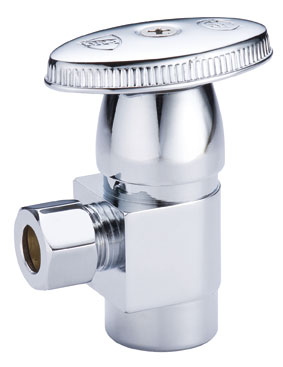
To the uninformed observer, the array of 40 product patents and several industry-standard certificates hanging on the walls of the office of Andy Lai, CEO of plumbing-hardware manufacturer Wen Sheng Fu Co., Ltd., would not seem the type of trophies to brag about. "They are only a part of our credentials," says Lai, whose confidence and comment reflect the importance of acquiring such competence-proving milestones, especially when some 90% of the company's orders come from North America, where plumbing hardware suppliers must adhere to strict regulations.
Lai says that his company has won over 100 patents for exterior design and function, as well as certificates such as IAPMO, UPC, NSF, CSA, California Lead Plumbing Law and AB1953.
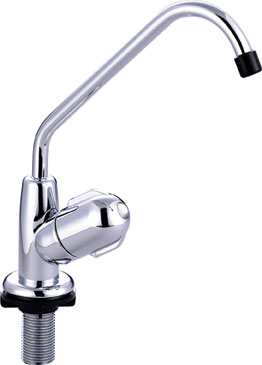
Investing resources to acquire patents and certificates shows the CEO's long-standing strategy: stay competitive by always launching new designs and measuring up to the latest standards in major markets. Such approach clearly shows that Wen Sheng Fu has gone beyond being an OEM but is also an ODM. "We consistently offer new designs to keep buyers interested, while being certified to the latest standards proves our products measure up," Lai says.
Diversify to Lower Risk
"At our start-up in 1987, we focused on angle valves, but have since expanded our line to minimize risk associated with over-concentration on a single product," says Lai. The company's major products include 1/4-turn ball valves, angle valves, needle valves, saddle valves, shower head arm, washing machine valves, brass fitting, potable-water faucets, and ceramic valves.
North America is still the world's biggest market for plumbing hardware and is completely dependent on foreign suppliers, as its own factories have all moved offshore," Lai says.
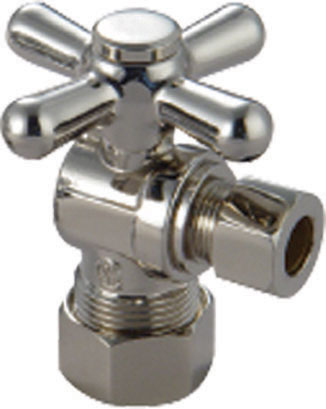
Being able to fill the foreign-supplier-dependent niche in North America, on the one hand, seems a promising role for makers as Wen Sheng Fu, but has a price attached: North America has introduced one strict standard after another governing plumbing hardware, including the California Assembly Bill 1953, or AB1953, to be effective on the first day of 2010 and mandates a ceiling of 0.25% of lead in plumbing products carrying potable water in the Golden State.
AB1953 raises the ante for all plumbing hardware suppliers who intend to stay in the game. Unlike RoHS (Restriction of Hazardous Substance) that regulates chemical content in end products, AB1953 restricts chemicals added during manufacturing. "So AB1953 compels manufacturers to clean up manufacturing, hence increasing the complexity of the business," Lai says.
80% of Output Shipped Stateside
Like the some 300 Taiwan-based plumbing-product manufacturers who each year ship 80% of output to North America, mainly the United States, Wen Sheng Fu also contributes to generating revenues for the sector close to NT$5 billion (US$150 million at US$1:NT$33) a year.
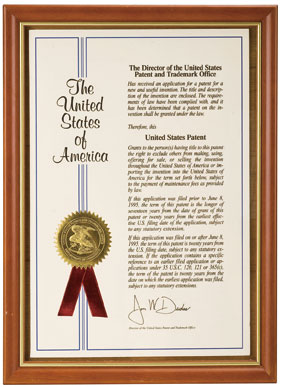
Serving mainly North America, where California is a historical leader in setting green standards for the nation as well as being a hotbed of growth before the global meltdown, has proven to be anything but a downhill ride. Experiencing the same as most of his domestic peers, Lai has had to pay a price, literally, for meeting increasingly complex, tough regulations in the form of higher production costs: "Increasing cost is mainly incurred by shifting to new materials that meet new standards," he stresses.
Currently, brass, an alloy of roughly 60% copper, 39.9% zinc and 0.5% lead, is the main material in plumbing fixtures, with the highly malleable lead added to facilitate mechanical processing. "Having to meet AB1953 and its lower lead content makes processing more difficult, thereby slowing output," Lai notes.
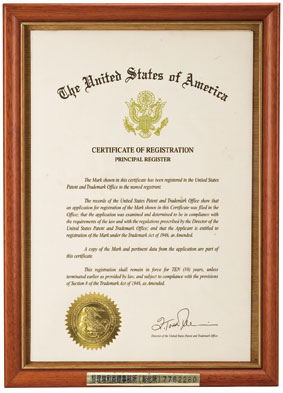
The trend towards higher standards is also a blessing in disguise, Lai says. "At least raising the bar will help to weed out substandard players, who tend to undermine integrity in the market...elevating standards is a way to widen the gap between us and less-qualified rivals," he says.
Lai also believes the stricter rules will oblige all manufacturers to upgrade production to better compete. "Even mainland Chinese manufacturers are keen to measure up, which definitely raises costs but also helps to shake off their negative stereotype," he notes. As everyone tries to play by the same standard, other criteria as customer service and punctual delivery become more important or even crucial. "For instance, you must be able to handle rush orders nowadays as the downturn and unpredictable variables force buyers to be increasingly hesitant to keep excessive inventories," he notes, as well as fretting over volatile brass quotations globally will wreak havoc for plumbing-hardware manufacturers as they try to control cost of inventory.
Computerized MachineryA 22-year-old manufacturer, Wen Sheng Fu, Lai reports, has followed the beaten path to adapt to higher-end production. "We have gradually adopted computerized machine tools to upgrade precision, including computer-controlled lathes, torque testers, electroplating-thickness gauge, corrosion-resistance testers, lifespan testers and flow-volume testers, which are installed at our only factory in Changhua in central Taiwan," he boasts.
Certainly an entrepreneur who has seen the ups and downs of the plumbing hardware sector, Lai still stays vigilant by adhering to an old adage: "Opportunity tends to knock more often for the prepared-mind. Being ready enables you to not only handle industry change, but also foresee problems, hence allowing you to set up solutions." Underselling by rivals remains the perennial challenge for his company. "We keep diversifying product items and acquiring certifications to stay ahead of competitors, who never stop threatening but only change their tactics," he stresses.
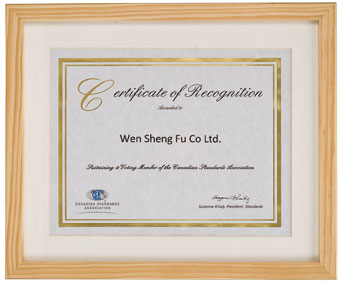
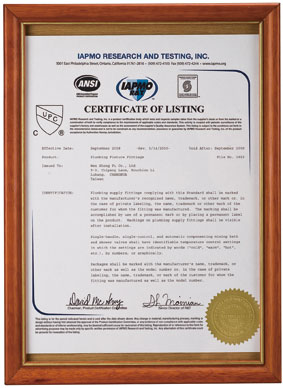
Signs of Recovery
The global meltdown that has pummeled virtually every sector worldwide also has not spared Wen Sheng Fu nor Lai's peers. The plumbing hardware suppliers in Taiwan saw about half of their orders wiped away during the bottom of the recession, estimates Lai. "With the market now showing recovery and judging from my corporate window, I believe the sector in Taiwan will likely pick up at least 10% this quarter over the last, but still likely to suffer an annual contraction of 50% this year," he estimates.
When asked to evaluate the outlook of the sector in Taiwan, Lai expresses cautious optimism. "I see many Taiwan-based plumbing fixture makers having evolved for the better over the past 40 years, going from OEM to ODM and even marketing brand-name items as OBM," he says, confirming his perception of significant industrial upgrading on the island, which is also backed by Changhua's recognized status as a global supply center of upscale plumbing fixtures, quite a feat considering only three decades ago small bands of family-run workshops cast valves with crude equipment.




